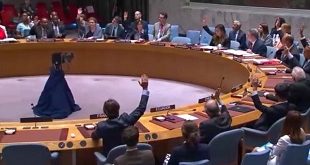
Ankara, Turkey | AFP | Turkish President Recep Tayyip Erdogan on Monday rejected a challenge from the main opposition party’s presidential candidate to hold televised debates ahead of snap polls on June 24.
Muharrem Ince, the Republican People’s Party (CHP) candidate running against Erdogan, earlier on Monday urged the president to take part in a TV debate.
But Erdogan firmly refused the offer. Erdogan is known for his fiery rhetorical skills but Ince is also popular as an effective orator.
“In particular, I do not want to get involved in television debate events,” Erdogan said at a press conference with Serbian counterpart Aleksandar Vucic in Ankara.
He said he did not want a debate to descend into an event where others would seek to “score points” off him.
Ince, who was chosen as the CHP candidate on Friday, had earlier Monday said: “Mr Erdogan, since you say we are up there with contemporary civilisations, let’s come together with the other candidates… let’s debate on television.”
Ince after his nomination delivered a thumping speech in which he vowed to unite the polarised country and transform Erdogan’s presidential palace into a “home of science” if he were elected head of state.
He also suggested all candidates should meet as a goodwill gesture.
The president accepted Ince’s request to meet, saying the two men could meet at Erdogan’s ruling Justice and Development Party (AKP) headquarters.
Last month Erdogan announced there would be simultaneous parliamentary and presidential elections on June 24, a year and a half earlier than scheduled.
After the polls, the country will implement constitutional changes approved in a April 2017 referendum to create an executive presidency, expanding the powers of the president.
Those also running against Erdogan include ex-interior minister and head of the new Iyi (Good) Party Meral Aksener, and Peoples’ Democratic Party (HDP) former leader Selahattin Demirtas even though he is currently jailed.
The CHP Saturday officially formed a coalition called the “Alliance for the Nation” — including the Good Party but not the HDP — to challenge the ruling party in the legislative polls but fielding their own candidates in the presidential vote.
 The Independent Uganda: You get the Truth we Pay the Price
The Independent Uganda: You get the Truth we Pay the Price


